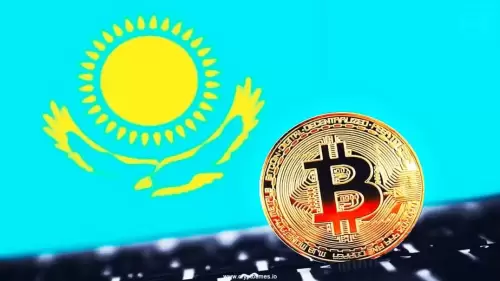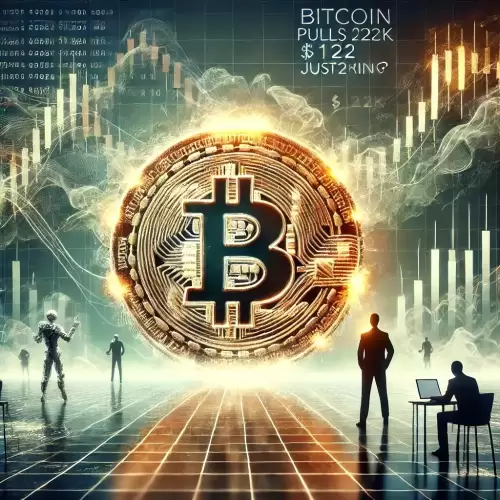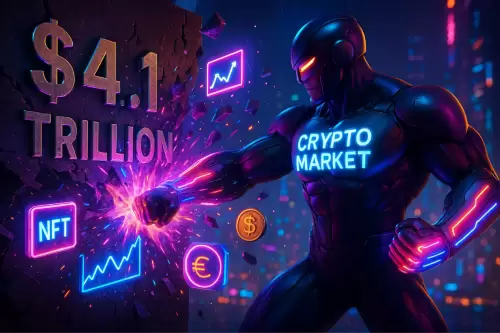German banks are warming up to crypto trading, driven by customer demand and regulatory changes. Is FOMO kicking in? Let's dive in.
German Banks, Crypto Trading, and FOMO: A New Era?
The winds are shifting in the world of German finance! Sparkassen-Finanzgruppe, a major German banking group, is planning to offer crypto trading services to its 50 million+ customers by 2026. Are German banks finally embracing crypto, or is it just a case of FOMO (Fear Of Missing Out)?
The Sparkassen Shift: A Sign of the Times?
For years, Sparkassen executives were skeptical of crypto, citing volatility and risk. They even blocked crypto purchases back in 2015. Now, they're partnering with Dekabank to provide crypto trading through their app. This is a big deal, signaling a potential change in how traditional financial institutions view digital assets. The German Savings Banks Association (DSGV) acknowledges that this move responds to existing demand and aligns with the EU's MiCA regulatory framework.
Germany's Crypto Inroads: Sparkassen Isn't Alone
Sparkassen isn't the only German bank exploring crypto. DZ Bank, Germany’s second-largest financial institution, partnered with Boerse Stuttgart Digital for a crypto service pilot in September 2024. Landesbank Baden-Württemberg also announced crypto custody solutions for institutional clients. The trend is clear: German banks are cautiously entering the crypto space.
Is It FOMO? Or Strategic Adaptation?
Is this a case of FOMO? Possibly. Crypto venture capitalist Kyle Chasse noted that “banks are catching up.” Eric Trump even speculated that banks might become extinct within 10 years if they don't embrace crypto. Messari CEO Eric Turner and Sygnum Bank’s Thomas Eichenberger predict even deeper integration by 2025, driven by regulatory acceptance. This suggests that banks recognize the potential of crypto and don't want to be left behind.
However, it's not just FOMO. The regulatory landscape is becoming clearer, with MiCA providing a framework for crypto assets. This gives banks more confidence to enter the space. Also, there's a growing demand from customers for crypto services. Banks are simply responding to market forces.
Beyond Bitcoin: Altcoins and Presales Gain Traction
While Bitcoin remains a dominant force, investors are increasingly looking at altcoins for higher potential returns. This is reflected in the Bitcoin dominance index dipping below crucial support levels. Structured presales, like that of Neo Pepe Coin ($NEOP), are gaining popularity. These presales offer transparency, gamification, and adherence to regulatory standards, attracting serious capital.
Mastercard and Chainlink: Bridging Traditional and Decentralized Finance
Mastercard's partnership with Chainlink further blurs the lines between traditional and decentralized finance. This collaboration enables Mastercard's nearly 3 billion cardholders to purchase crypto assets directly on the blockchain. This move improves accessibility and integrates traditional payment infrastructure with blockchain technology.
The Bottom Line
German banks are cautiously entering the crypto space, driven by customer demand, regulatory changes, and a desire to avoid being left behind. While there's an element of FOMO, it's also a strategic adaptation to the evolving financial landscape. With structured presales and partnerships like Mastercard and Chainlink gaining traction, the future of finance looks increasingly decentralized. So, buckle up, folks! It's gonna be a wild ride, but one thing's for sure: the old ways of finance are changing, and crypto is playing a bigger role than ever. Who knows, maybe your Oma will be trading crypto on her Sparkassen app soon!













































































